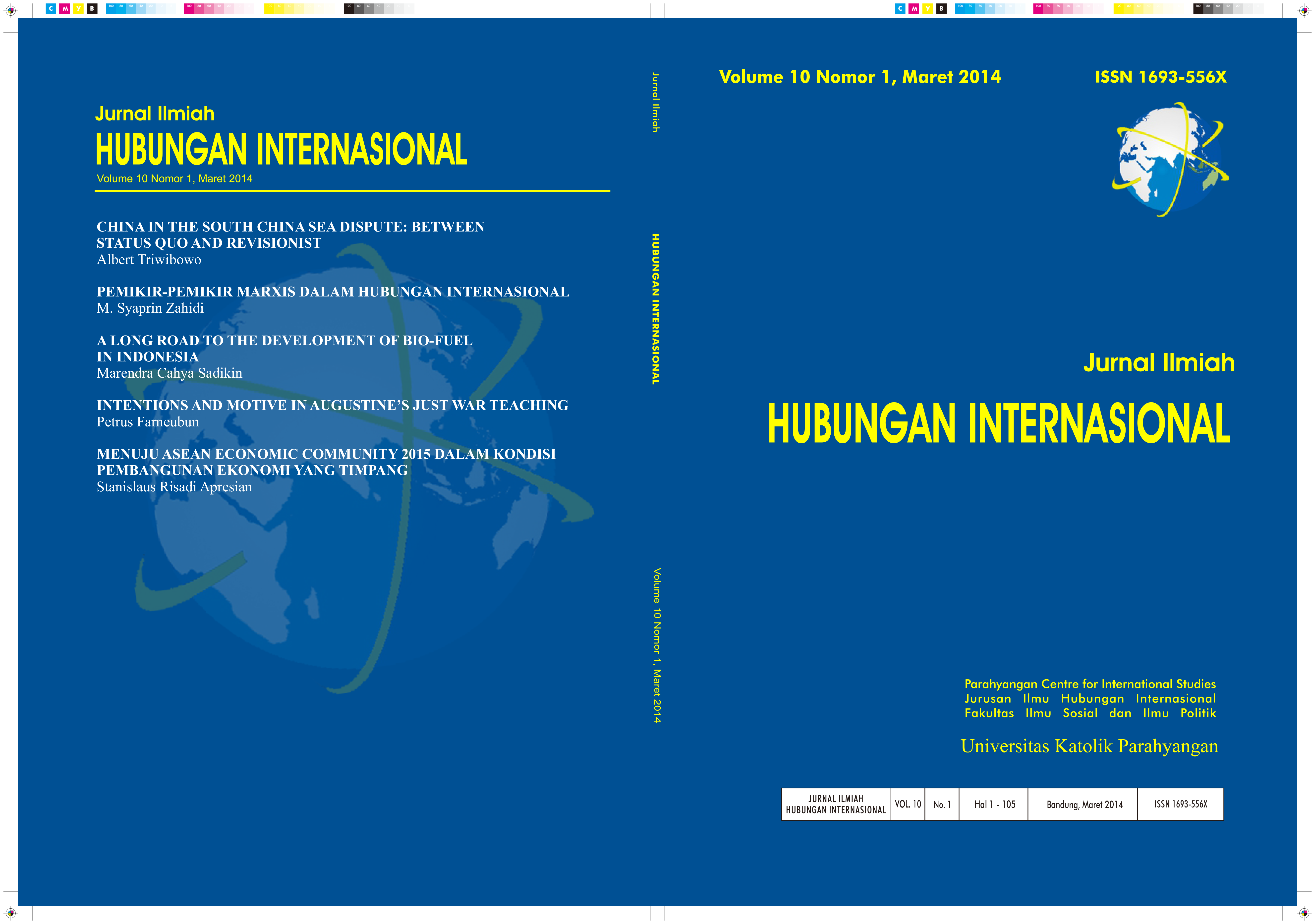Intentions And Motive In Augustine’s Just War Teaching
DOI:
https://doi.org/10.26593/jihi.v10i1.1052.%25pAbstract
Abstract: Augustine, one of the greatest christian thinkers, tries to reconcile the love of neighbors
and justification of wars. He develops a radically different biblical interpretation than those of early
Church Fathers who believe in incompatibility of Jesus's central teaching of loving neighbour and
Christian participation in warfare. Augustine repudiates such incompatibility. This paper investigates
the teaching of Augustine's just war teaching formulated in his masterpiece The City of God. In the
light of this tradition, this paper specifically adresses the intentions and the primary motive of the just
war. This paper argues that both the intentions and motive have to be distinctive. Accordingly, war is
justified if it meets two distinctive conditions. First, the goal of the war is to bring peace, restore
justice, and and punish wrong doers. Second, the war should be based on Christian charity or love of
neighbours. This paper begins by introducing the core issue of Christian understanding of its position
on warfare, followed by brief profile of Augustine. Then, it addresses Augustine's interpretation of
Jesus' teaching and finally it analyses Augustine's just war teaching by focusing on intentions and
motive. Two cases, NATO Interventions in Kosovo 1999 and Libya 2011, are also included to illustrate
the principle of Right Intention and Motive. It argues that NATO interventions meet the conditions of
Right Intention but fail in the principle of Right Motive.
Key Words: Augustine, Just War, Love, Justice, Intentions, Motive
Downloads
How to Cite
Issue
Section
License
This journal uses Creative Commons license (CC BY). We allow readers to read, download, copy, distribute, print, search, or link to the full texts of its articles and allow readers to use them for any other lawful purpose. The author must be aware that the article copyrights will be fully transferred to Jurnal Ilmiah Hubungan Internasional only if the article is accepted to be published in the journal through signing of the Copyrights Transfer Agreement. Authors are allowed to resend their manuscript to another journal or intentionally withdraw the manuscript only if both parties (JIHI and Authors) have agreed on the related issue. Once the manuscript has been published, authors are allowed to use their published article under Jurnal Ilmiah Hubungan Internasional copyrights.





